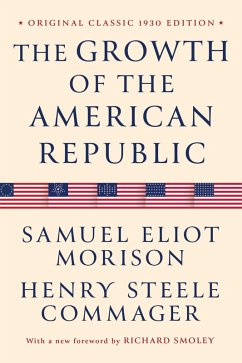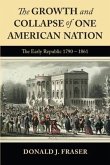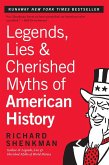The Growth of the American Republic tells the story of how an insignificant string of colonies on the Eastern Seaboard transformed itself into the richest and most powerful nation in history.
This account, by renowned historians Samuel Eliot Morison and Henry Steele Commager, gives a full, sweeping overview of the United States between 1763, the end of the French and Indian War, and World War I. First published in 1930, it remains unsurpassed for the range and depth of its coverage, extending from social, geographical, and economic factors to the events, personalities, and conflicts that shaped the history of this nation.
The Growth of the American Republic also stands among historical writings as a paragon of readability, clarity, and accessibility.
Samuel Eliot Morison (18871976) was a prolific and much-admired historian. In addition to his work on general American history, he wrote extensively on naval history and on his native New England. He received his PhD from Harvard University and taught there for forty years. Honored by many as the dean of twentieth-century American historians, he was known for avoiding excessive theorizing in his works. Instead, he chose to present his account of events in a clear and reader-friendly manner.
Henry Steele Commager (190298) was another highly distinguished historian of twentieth-century America. Teaching at New York University, Columbia University, and Amherst College, he is credited with 40 books and 700 essays and reviews. Known not only for his academic research and writing, he was also vocal and active in social matters, being a prominent opponent of the McCarthyite frenzy of the 1950s and, later, of the war in Vietnam.
In an age of increasingly narrow specialization in the academic world, The Growth of the American Republic, reproduced here in its groundbreaking first edition, remains essential reading for anyone interested in historyand indeed for all Americans. Nearly 100 years after its initial publication, its bright, polished, speedy style still makes this classic account of our nation's past into a page-turner.
Hinweis: Dieser Artikel kann nur an eine deutsche Lieferadresse ausgeliefert werden.
This account, by renowned historians Samuel Eliot Morison and Henry Steele Commager, gives a full, sweeping overview of the United States between 1763, the end of the French and Indian War, and World War I. First published in 1930, it remains unsurpassed for the range and depth of its coverage, extending from social, geographical, and economic factors to the events, personalities, and conflicts that shaped the history of this nation.
The Growth of the American Republic also stands among historical writings as a paragon of readability, clarity, and accessibility.
Samuel Eliot Morison (18871976) was a prolific and much-admired historian. In addition to his work on general American history, he wrote extensively on naval history and on his native New England. He received his PhD from Harvard University and taught there for forty years. Honored by many as the dean of twentieth-century American historians, he was known for avoiding excessive theorizing in his works. Instead, he chose to present his account of events in a clear and reader-friendly manner.
Henry Steele Commager (190298) was another highly distinguished historian of twentieth-century America. Teaching at New York University, Columbia University, and Amherst College, he is credited with 40 books and 700 essays and reviews. Known not only for his academic research and writing, he was also vocal and active in social matters, being a prominent opponent of the McCarthyite frenzy of the 1950s and, later, of the war in Vietnam.
In an age of increasingly narrow specialization in the academic world, The Growth of the American Republic, reproduced here in its groundbreaking first edition, remains essential reading for anyone interested in historyand indeed for all Americans. Nearly 100 years after its initial publication, its bright, polished, speedy style still makes this classic account of our nation's past into a page-turner.
Dieser Download kann aus rechtlichen Gründen nur mit Rechnungsadresse in A, D ausgeliefert werden.
Hinweis: Dieser Artikel kann nur an eine deutsche Lieferadresse ausgeliefert werden.









